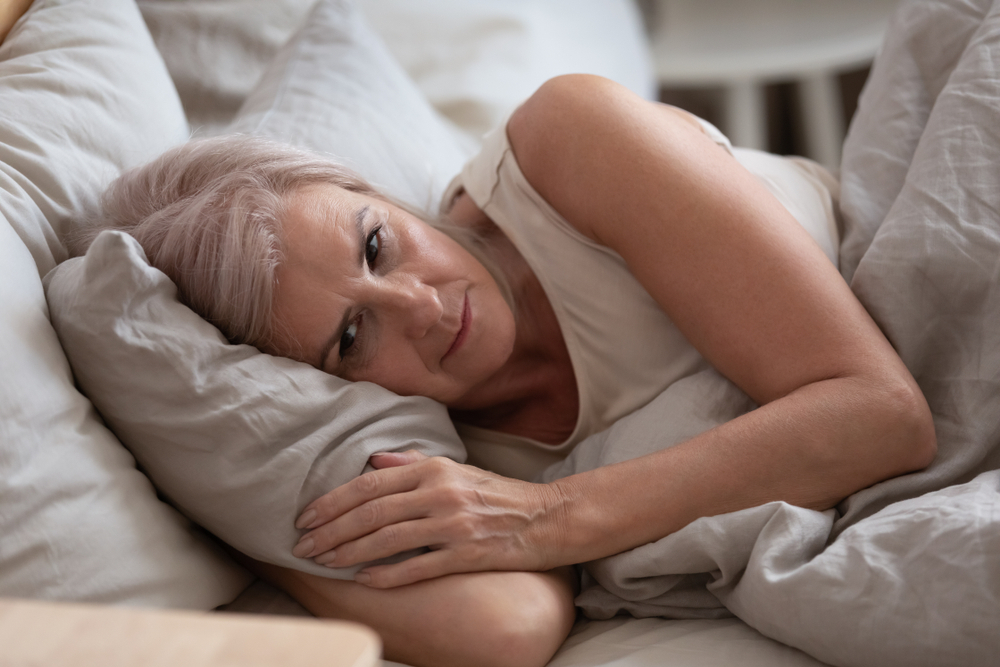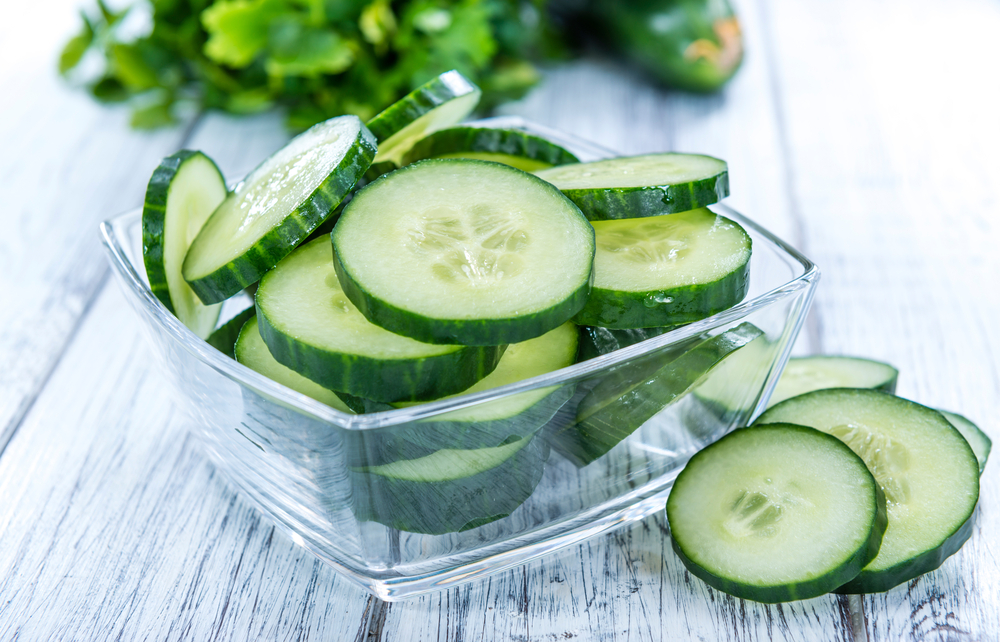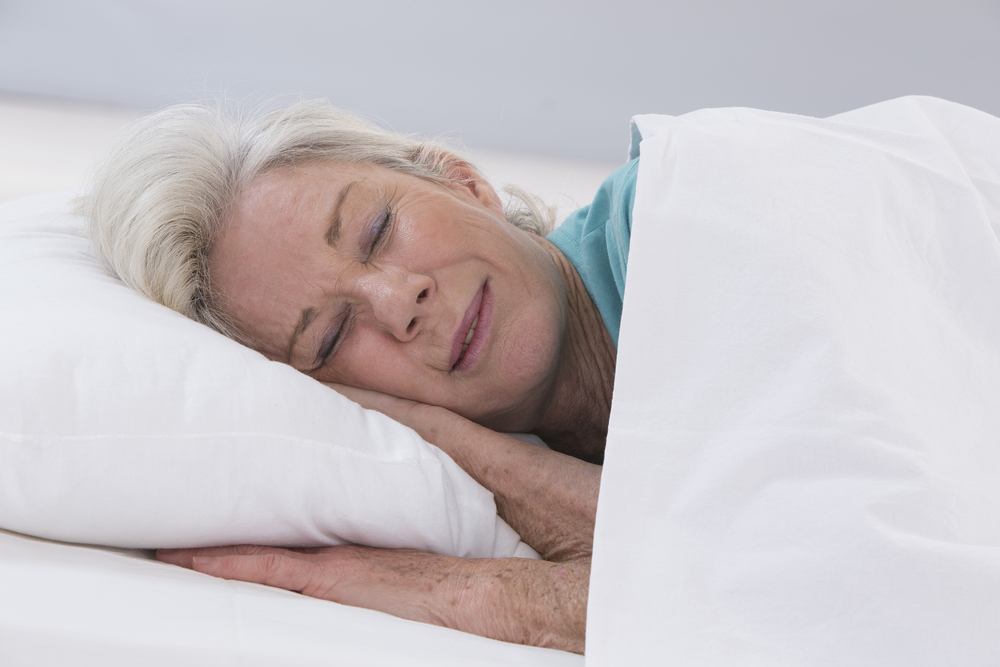As the abundance of frustrated social media posts will prove, Brits can struggle to sleep when temperatures start to rise. In fact, in the week of the UK’s most recent heatwave (July 2022), searches for ‘how to sleep when it's hot’ jumped 3,450%!
For women who are going through menopause, this struggle can be a nightly occurrence. One of the most common and recognisable symptoms of menopause is hot flushes. Also known as night sweats, hot flashes are sudden and intense feelings of heat across the face, neck and chest.
The summer can be an incredibly frustrating time for menopausal women, as the higher temperatures work to further amplify the symptoms of their hot flashes.
With summer still in full swing, we’ve spoken to an expert to reveal how to make sleeping with menopause easier this summer.

Night sweats are amplified in the summer, triggering other reactions that makes sleep difficult
You may think that hot flashes are the only reason why sleeping in the summer is more difficult. However, as wellness expert Sarah-Jane Johnston from evolution34 explains, this can just be the tip of the iceberg:
“Menopausal women can experience up to 30+ symptoms as they enter perimenopause (the transition into menopause lasting around four years on average) into postmenopause (the time following the menopause, typically between four to five years). These symptoms can be categorised into three areas; physical, psychological and emotional. All three impact how well a woman sleeps during the summer.
“Physical symptoms, such as hot flushes and night sweats, are not helped in the summer. Known as vasomotor symptoms, these temperature dysfunctions are due to changes in gonadal hormones (hormones produced by the ovaries), such as oestrogen and progesterone.
“The symptoms can also have an impact psychologically and emotionally. A lack of sleep can cause stress and anxiety, which may lead to fatigue and feeling like you cannot function the following day.
“It can also create a sense of worry and dread about going to sleep - if you start to believe you won’t be able to get a good night’s sleep, you’ll be less likely to relax and drift off come bedtime.”

Swap your hot drink for a cool herbal tea 45 minutes before bed this summer
If your nightly routine includes a cup of tea before bed, it’s time to make some changes. For menopausal women, drinking a hot drink on a hot day while experiencing hot flashes can make them feel - you guessed it - even hotter, so sleep becomes near impossible.
Instead, Sarah-Jane offers a simple swap: “Having a cooled-down drink 45 minutes before bed is a great alternative to hot drinks. Swap a cup of tea or coffee for a cool cup of camomile herbal tea, which has sedative effects that will help calm you.
“Eliminating or limiting alcohol and caffeine can also benefit menopausal women. Ideally, you’d have no caffeine after 2pm to prepare for bed, as it can have stimulant effects for up to seven hours.”
Magnesium-rich cucumber could make sleeping easier for menopausal women this summer
It’s common for menopausal women to have low magnesium levels. However, maintaining adequate levels of magnesium can actually offer many benefits, including easing the unwanted symptoms of menopause.
Magnesium relaxes the neurotransmitters in your brain, helping to relax your nervous system readying it for sleep. Levels of the naturally occurring sleep hormone, melatonin, decrease as we age, but magnesium works alongside this hormone to regulate your sleep and wake cycles.
The good news is you can boost your magnesium levels through your diet. Sarah-Jane highlights some of the magnesium-rich foods that won’t break the bank:
- Cucumber - 59p
- Pumpkin seeds - £2.30 (250g)
- Sunflower seeds - £2.30 (300g)
- Almonds - £2.50 (200g)
- Plain peanuts - £2.00 (300g)
- Broccoli - 55p
- Green beans - 77p
Total: £11.01*

The humble cucumber comes top of Sarah-Jane’s recommendations. Costing just 59p, this versatile veg can be added to a variety of meals, is low in calories and high in magnesium. It’s the perfect addition to any summer salad.
Sarah-Jayne also recommends tart cherry juice: “Tart cherry juice is rich in the sleep hormone melatonin. In the summer, you can freeze the juice into ice cubes, which will cool and calm you before bed, leaving you ready for sleep.”
*Based on the cost of sample products from Tesco.
Expert reveals the changes menopausal women should make to their bedtime routines this summer
Sarah-Jane explains how we should adjust our nightly habits as the weather heats up in the summer:
“If you’re used to having a hot bath or shower before bed, swap it for a cool bath instead. Taking a hot bath or shower in already hot conditions will leave you feeling too warm for sleep.
“Likewise, you need to think about your bedding and pyjama choice too. If you have high thread count bedding, swap it for a cooler duvet cover in the summer. And choose nightwear with natural fibres to let your body breathe.”
The best materials for nightwear in the summer
Linen, cotton and, believe it or not, wool is some of the most breathable materials on offer. Linen and cotton are both lightweight and breezy, but if you do opt for woollen pyjamas, it’s best to choose a finer knit to still keep you cool.
Bamboo is another good option for pyjamas. The material is both soft and breathable, so can help you regulate your temperature throughout the night.
Synthetic materials can also offer good moisture-wicking properties during night sweats. Specialist blends of synthetic and natural materials, usually offered by specialist menopause nightwear suppliers, are effective at wicking moisture away while keeping you cooler.
The best materials for bedding in the summer
As with pyjamas, linen or cotton bedding is the best choice during soaring temperatures. When choosing sheets or a duvet cover, check out the thread count; a lower thread count usually means thinner material, and thin material can prevent you from overheating.
Linen is naturally antimicrobial and supports temperature regulation. Not only that, it’s strong and long lasting too.

If you’d still like to sleep with a duvet, switch your usual duvet for one with a lower tog rating. Tog ratings essentially measure how insulating a duvet is, so we recommend switching to a lower 4.5 tog duvet during the summer.
Down-filled duvets and pillows are more breathable than synthetic options, as the fibres inside are less tightly packed, making them great in warmer weather.
However, you may find it’s best to sleep without a duvet at all if your night sweats are particularly bad in the summer. Similar to what you may have experienced on holiday abroad, sleeping with just a linen sheet or thin blanket over you will keep you cooler.
Menopause can seriously impact your sleep, leaving you feeling tired, lethargic and less yourself the next day.
We always advise speaking to a doctor about your symptoms if you are going through menopause, as every experience is different. However, we hope the above tips can go some way in helping alleviate your symptoms, so you can make the most of the summer and enjoy the warm weather.
If you are looking for a new mattress, you can find additional advice on the best choice of mattress for those experiencing night sweats in our mattress buying advice for women.


















